
-
Find the right food for your petTake this quiz to see which food may be the best for your furry friend.Find the right food for your petTake this quiz to see which food may be the best for your furry friend.Health CategoryFeatured products
 Adult Light Large Breed Chicken Meal & Barley Recipe Dog Food
Adult Light Large Breed Chicken Meal & Barley Recipe Dog FoodFewer calories for less active large breed dogs
Shop Now Hill's Science Diet Adult Healthy Mobility Large Breed Chicken Meal, Barley & Brown Rice Recipe Dog Food
Hill's Science Diet Adult Healthy Mobility Large Breed Chicken Meal, Barley & Brown Rice Recipe Dog FoodAdvanced nutrition shown to support joint health and improve mobility
Shop Now Adult Large Breed Chicken & Barley Recipe Dog Food
Adult Large Breed Chicken & Barley Recipe Dog FoodSupports healthy joints, lean muscle, and beautiful coat for large breed dogs
Shop NowFeatured products Adult Oral Care Chicken & Brown Rice Recipe Cat Food
Adult Oral Care Chicken & Brown Rice Recipe Cat FoodClinically proven kibble technology to reduce plaque & tartar build-up
Shop Now Adult Perfect Digestion Chicken, Barley & Whole Oats Recipe Cat Food
Adult Perfect Digestion Chicken, Barley & Whole Oats Recipe Cat FoodHill's Science Diet's breakthrough nutrition supports ultimate digestive well-being & healthy microbiome
Shop Now Kitten Healthy Cuisine Tender Chicken & Rice Medley
Kitten Healthy Cuisine Tender Chicken & Rice MedleyDelicious tender chicken and rice in a mouthwatering sauce with precisely balanced nutrition to support 5 essential building blocks for lifelong health
Shop Now -
DogCat
- Cat Tips & Articles
-
Health Category
- Weight
- Skin & Food Sensitivities
- Urinary
- Digestive
- Kidney
- Dental
- Serious Illness
-
Life Stage
- Kitten Nutrition
- Adult Nutrition
Featured articles Fun Ideas for Kids and Pets This Summer
Fun Ideas for Kids and Pets This SummerOutdoor summer activities with your dog or cat can be fun for kids, too. Learn how they also teach kids responsibility & creates a bond with their pet.
Read More Cat vs. Dog: Which Is the Best Pet for Me?
Cat vs. Dog: Which Is the Best Pet for Me?Learn about important differences between dogs and cats, such as cost & space considerations. These factors can help you decide which pet is best for you.
Read More Adopting a Pet: What You Need to Know
Adopting a Pet: What You Need to KnowLearn the basics of adopting a pet, including where to begin and common questions you should ask yourself when deciding which kind of pet is best for you.
Read More -


Dog's will eat all sorts of things, but eating dirt might be one that gives you cause for concern. However, eating dirt is a fairly common behavior among dogs. When pooches eat non-food items, whether dirt, grass, rocks, sticks or garbage, they may be diagnosed with a condition called pica, which just means that your dog is eating non-food items. If the only non-food item they eat is dirt, then they might have what is referred to as geophagia, according to Wag! But is your dog's dirt eating just a strange habit or should you be concerned?
Here's why your dog might feel compelled to chow down on dirt and why you should take the behavior seriously.
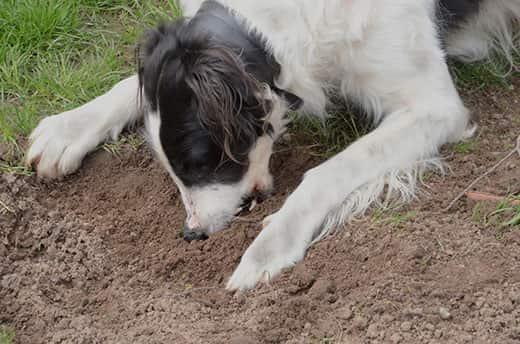
Why Is My Dog Eating Dirt? Possible Explanations
Dogs eat dirt for a number of reasons. The desire for munching on soil might be boredom or stress, or it could simply be because they smelled something tasty mixed in the mud. But it could also signal an underlying health problem or a lack of proper nutrition, says the American Kennel Club(AKC). Compulsive geophagia might be a sign that your pooch has one of the following issues.
Anemia
Anemia in dogs is a condition marked by low blood cell count or hemoglobin levels. According to CertaPet, anemia can be caused by a nutritional imbalance. An anemic dog may instinctively turn to eating dirt in an attempt to restore any deficiencies causing this condition. The only way to reliably diagnose anemia is through blood work tests.
Nutritional Imbalance or Mineral Deficiency
Even without anemia, a nutritional imbalance alone could spur your pooch to gobble dirt. Eating dirt can be a sign that your dog isn't getting enough of the essential minerals they need for good health. Or, a hormonal issue could be preventing your dog from absorbing the minerals and nutrients in their food. Nutritional imbalances are very rare in healthy dogs, so make sure to talk to your veterinarian about choosing the best dog food for your pup.
Upset Stomach or Gastrointestinal Disturbance
Dogs might also turn to eating dirt in an attempt to soothe an upset stomach or rumbling bowels. However, if your dog is having tummy issues, they're more likely to eat grass, says the AKC. It's possible that in a dog's zeal to wolf down the grass, some dirt might get added to the mix.


Tasty Tips
The Dangers of Dogs Eating Dirt
If you see your dog eating dirt, make sure to immediately discourage the behavior, as it can pose a number of risks to their health. Here are several risks associated with geophagia in dogs, according to the AKC:
- Impacted intestines, which could require surgery
- Consumption of pesticides and other toxins
- Choking
- Damage to the teeth, throat, digestive tract or stomach from ingesting rocks or sticks
- Ingestion of soil-dwelling parasites
When Should I See the Vet?
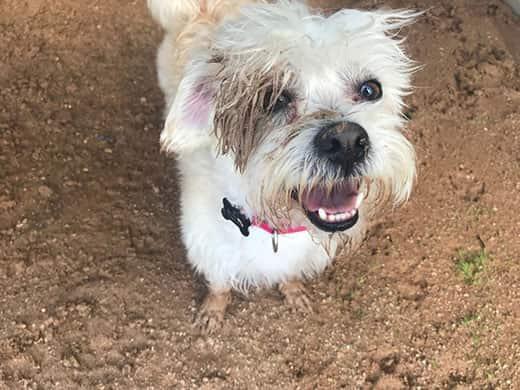 Pay attention to see if your dog is eating dirt regularly or if it was just a one-off event. If they only eat dirt once or twice to relieve stress or boredom, you should discourage this behavior, but it might not be cause for alarm. However, if it turns into a compulsive habit or you notice your dog acting different after eating the dirt, contact your veterinarian. They'll need to examine your dog for any underlying health issues that might be prompting this behavior. The vet may also check your pup for any internal injuries that may have resulted from eating dirt.
Pay attention to see if your dog is eating dirt regularly or if it was just a one-off event. If they only eat dirt once or twice to relieve stress or boredom, you should discourage this behavior, but it might not be cause for alarm. However, if it turns into a compulsive habit or you notice your dog acting different after eating the dirt, contact your veterinarian. They'll need to examine your dog for any underlying health issues that might be prompting this behavior. The vet may also check your pup for any internal injuries that may have resulted from eating dirt.
How to Prevent Your Dog from Eating Dirt
If a health problem or nutritional imbalance is behind your dog's geophagia, then treating the condition or upgrading your dog's food should stop the behavior. However, if eating dirt has become a habit that needs to be broken, here are several strategies to try:
- Provide a distraction whenever your dog starts eating dirt. You can distract them with a verbal command or a loud noise, or by offering a toy to chew on instead.
- Leash your dog whenever you go outside so you can lead them away from areas with exposed soil.
- Remove indoor potted plants or place them well out of your pup's reach.
- Make sure your dog gets plenty of physical activity and mental stimulation to help relieve stress and prevent them from eating dirt out of boredom.
- Address any potential causes of stress in your dog's life, such as a big change in routine or family structure or separation anxiety. It could be that your dog simply needs time to adjust.
If none of these suggestions work, you might need to seek help from a professional trainer or dog behavior specialist to break this habit.
While eating dirt might be common among dogs, it isn't safe to let it continue. The sooner you act to prevent this behavior and get to the bottom of why it's happening, the better it will be for your dog's health and well-being.


Jean Marie Bauhaus is a pet parent, pet blogger, and novelist from Tulsa, Oklahoma, where she usually writes under the supervision of a lapful of fur babies.
Related products

Advanced nutrition shown to support joint health and improve mobility

Fewer calories for less active large breed dogs

Supports healthy joints, lean muscle, and beautiful coat for large breed dogs

Fewer calories for less active dogs
Related articles
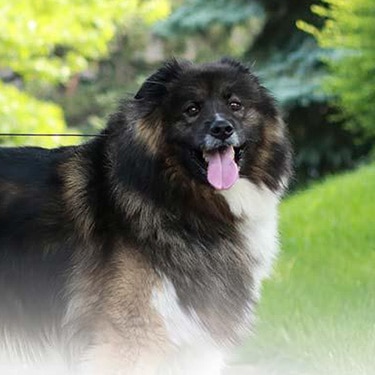
A little exercise can make a big difference. Not only will it enhance your pet’s health, but it will beef up your relationship as well.
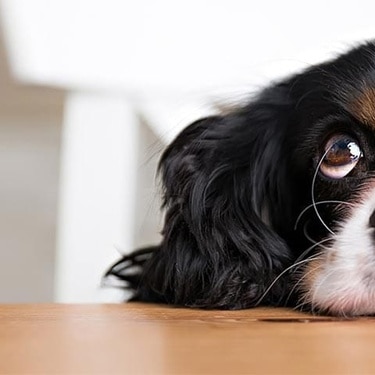
Learn how to stop your dog from begging at the dinner table, and understand how it can help contribute to his health.
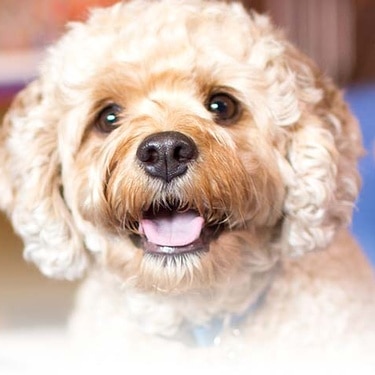
Learn about choosing the right dog food to help ensure your mature older dog will receive the correct balance of nutrition.
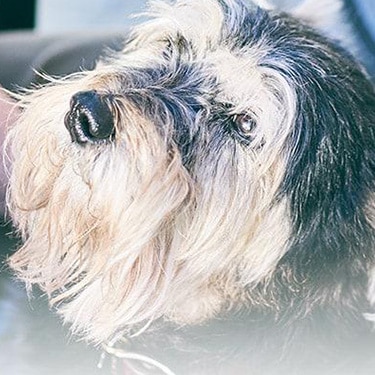
Though it may seem like your four-legged friend loves nothing more than to nap on the couch, dogs need regular exercise to stay healthy just like people do.

Put your dog on a diet without them knowing
Our low calorie formula helps you control your dog's weight. It's packed with high-quality protein for building lean muscles, and made with purposeful ingredients for a flavorful, nutritious meal. Clinically proven antioxidants, Vitamin C+E, help promote a healthy immune system.
Put your dog on a diet without them knowing
Our low calorie formula helps you control your dog's weight. It's packed with high-quality protein for building lean muscles, and made with purposeful ingredients for a flavorful, nutritious meal. Clinically proven antioxidants, Vitamin C+E, help promote a healthy immune system.

